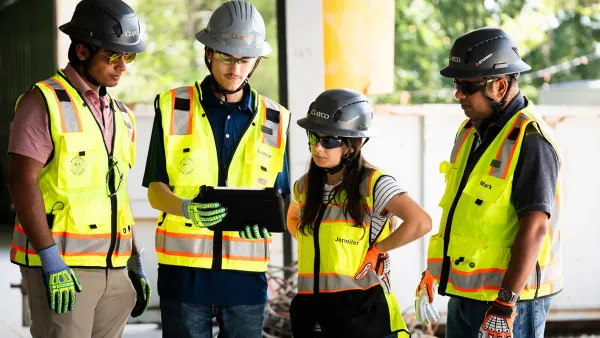Dive Brief:
- Ageism is more often encountered during the job search process than in the workplace, according to a recent survey of U.S. professionals over age 40 by WerkLabs, a division of job site The Mom Project. Sixty percent of respondents said they had encountered ageism in their professional lives.
- The survey asked participants to rate the extent to which they experienced ageism at various stages in the job search process. Initial screening conversations, final hire decisions and post-screen interviews elicited the three highest shares of respondents who said they experienced ageism during these stages.
- "Significantly more women" said they experienced ageism in their professional lives than men, WerkLabs said, and age discrimination impacted professionals at higher career levels more frequently than those at lower levels. When researchers broke down responses by industry, the highest share of respondents who experienced ageism were concentrated in financial services, followed by advertising and marketing and technology.
Dive Insight:
Advocates and workforce experts have long highlighted ageism as a particularly difficult form of discrimination to address, despite the fact that federal law prohibits age discrimination against people who are age 40 or over.
The pandemic may have made existing barriers worse. In a study published by the National Bureau of Economic Research last year, researchers at Tulane University found higher unemployment rates for workers ages 65 and older compared to workers ages 25 to 44. The economic recession caused by COVID-19 resulted in a negative impact for older workers that was even worse than that of previous recessions, per the study.
"We also see that the COVID-19 recession impacted workers 65+ more than younger workers, while this is the opposite in previous recessions," the report said. "This is clear early evidence that the COVID-19 pandemic and recession is hitting older workers harder."
As part of its response to the pandemic, the U.S. Equal Employment Opportunity Commission published technical assistance that, in part, addressed how COVID-19 intersects with protections for workers under the Age Discrimination in Employment Act. EEOC said that the ADEA prohibits a covered employer from involuntarily excluding a worker from the workplace based on their age, even if the employer does so "for benevolent reasons" such as protecting the worker from a higher risk of contracting COVID-19.
The same document noted, however, that employers may provide flexibility to workers ages 65 and older. The ADEA "does not prohibit this, even if it results in younger workers ages 40-64 being treated less favorably based on age in comparison," according to EEOC.
2020 also marked a few key actions by EEOC on the issue of age discrimination. In August, the agency issued a letter in which it said that an EEOC investigation concluded IBM had conducted actions "that had an adverse impact in [a] protected age group," including "messaging from Respondent's highest ranks directing managers to engage in an aggressive approach to significantly reduce the headcount of older workers to make room for Early Professional Hires."
Then, in September, EEOC filed a lawsuit against The Ohio State University, alleging that the institution violated the ADEA when it fired a 53-year-old HR professional and replaced him with a younger and less-qualified employee.
Still, some courts have outlined limits to the protections granted by the ADEA. In 2019, the 7th U.S. Circuit Court of Appeals held that the law's disparate impact protections do not apply to external job applicants.
In its analysis of the results, WerkLabs said HR teams may be able to counteract age discrimination by auditing recruitment materials, conducting interviewer training and auditing development programs so that they reflect a commitment to stopping ageism at work.











